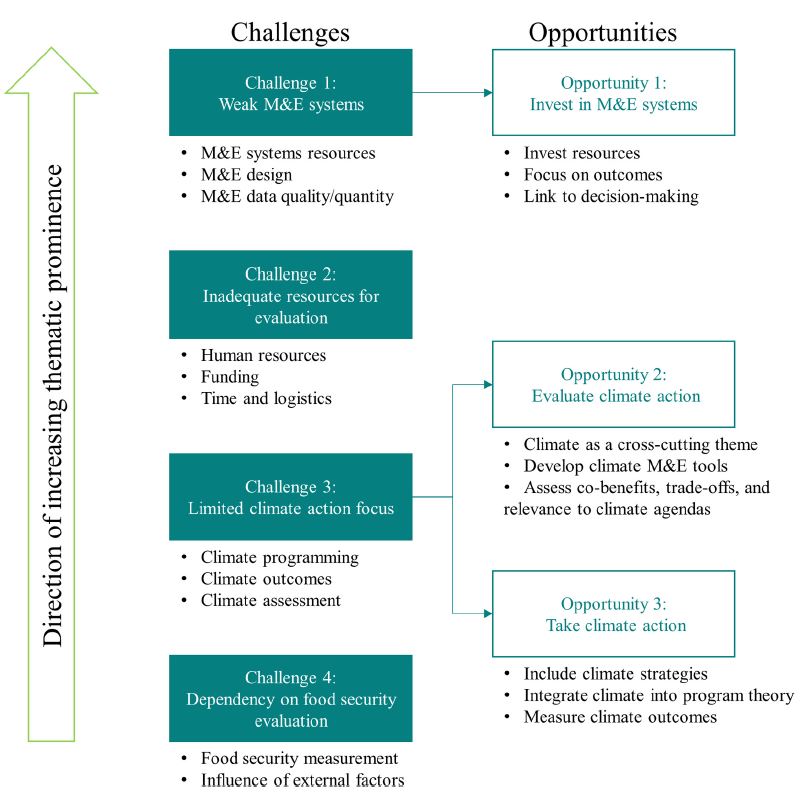March 01, 2021 | Global Food Security |
Introduction: The Paris Agreement mandates countries to assess their progress towards climate adaptation, mitigation, and financial objectives through the 2023 global stocktake. However, the level of climate integration in evaluation processes ahead of this critical event remains uncertain. Recognizing the importance of incorporating climate action into food security and broader development initiatives, numerous United Nations agencies emphasize the need for such integration. To understand how effectively United Nations food security programs evaluate climate action, a Canadian research team led by University of Guelph works with Priestley International Centre for Climate based in UK to systematically review evaluations published between 2014 and 2019.
Key findings: Of the 136 evaluations examined, 69% assessed food security programs with integrated climate action. While many evaluations reported on adaptation outcomes, the degree of climate action integration varied. Challenges identified included inadequate resources, weak monitoring systems, reliance on food security evaluation frameworks, and limited climate focus in programs and evaluations.
Fig. | Challenges and opportunities for assessing climate action as reported in United Nations food security evaluations from 2014 to 2019.




